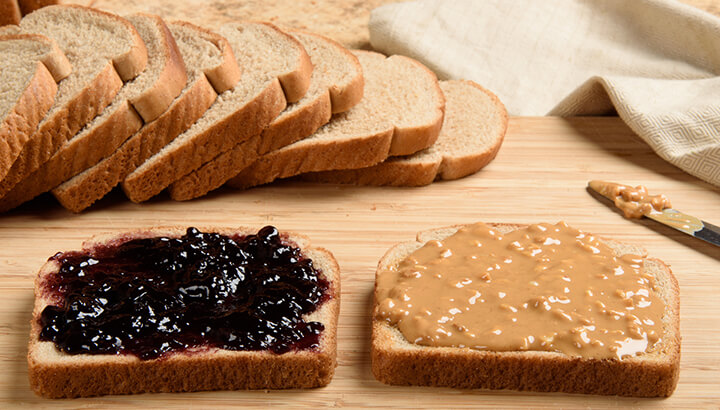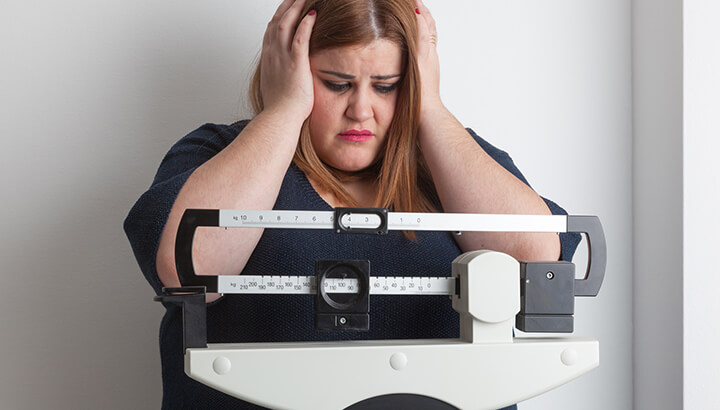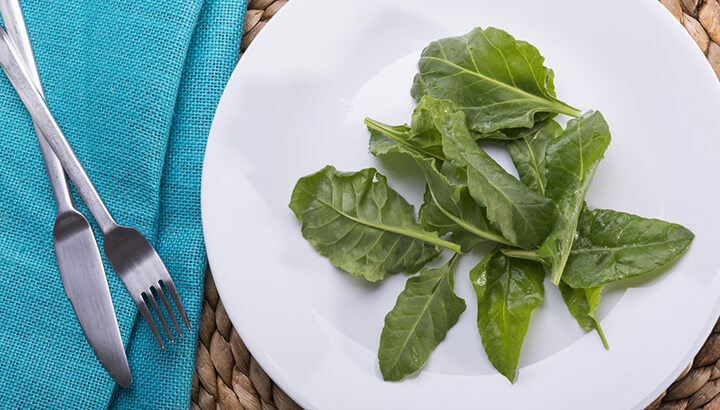
There are so many diets out there, yet more than two-thirds of Americans are considered to be overweight — with more than one third of the population considered obese. We’re also a culture obsessed with our appearance, weight and dieting.
Just think about that for a second — something isn’t adding up, is it?
For years, trendy diets have captured the attention of millions. Year after year, individuals who are desperate to lose weight and improve their health purchase all kinds of “special” foods, pills and workout kits — all without much result. How can that be? Some of these diets have to work, right?
The answer is, of course. Some select individuals do lose weight, but the large majority quickly gain it all back. The solution to your weight loss struggle is not some yo-yo diet, and it’s most certainly not starving yourself. When you live a healthier, cleaner lifestyle, trying to maintain a healthy weight will no longer be an issue.
Here are 9 reasons why your past diets have failed
Significant weight gain is essentially a sign that you’re unhealthy — which is leading to chronic conditions, including diabetes and heart disease. There are many reasons why diets fail, so don’t become discouraged. You can achieve your desired weight, plus the added benefits of positive physical and mental health by changing your lifestyle.
Sure, “failure” isn’t the most uplifting word. And for many, failure is what holds them back from achieving their goals. Perhaps you have tried five, ten or even twenty diets in the past, all which led to disappointment and a fluctuating number on the scale. Here are nine reasons why that is.
1. You’re not eating anything
Big no, no — starving yourself is never the answer. First of all, your body relies on a steady intake of nutrients, allowing your mind and body to function. When you do not eat enough on a daily basis, your body will go into starvation mode. Although you may begin to lose some fat, you will also lose lean muscle mass. This will affect your metabolism, as well as other body functions.
Secondly, you’ll have less energy, reducing not only your level of self-motivation but your ability to remain active. Being healthy is not about counting calories, it’s about balance, and regular exercise is part of that equation.
2. You binge on the wrong foods

If you’re used to skipping breakfast and lunch, trying to “cut back” on calories, you may also binge in the afternoon or evening. Not only can this be harsh on your digestive system, but in many cases, the wrong types of foods are chosen — pizza, soda, chips, cookies, you name it. This is known as negative dietary displacement.
You can’t pass on an egg and tomatoes for breakfast, holding out your calories for a midday donut. When you consume junk foods that are low in nutrients and fiber, you’re also less likely to feel full and satisfied. This can then lead to overeating, and in turn, increased body fat.
3. You view your diet as a temporary change
How many people do you know who always seem to be on a new diet, thinking they can eat this and that after they lose 10 pounds. If you think of a diet as a short-term regimen, hopping from one diet to the next, you’re not approaching your health in the right way. Getting healthy is a lifelong commitment. It’s a way of life.
If you’re thinking, no chocolate for the rest of my life — no need to panic. The truth is, you can still enjoy some of the foods you love, including wine, cheese and even chocolate. Being healthy isn’t about sticking to strict diet guidelines. It’s about moderation, living the majority of your life in a positive, healthy-driven mindset.
4. You’re looking for a quick fix

Once again, many individuals have a set goal in mind — five, fifteen, maybe even thirty pounds. They see their diet plan a quick-fix with a specific end goal. You see ads all the time, “lose up to 15 pounds in just seven days.” For many, this is what they’re after — an immediate solution. The problem is, the methods that are generally used for these diets do not result in long-term results.
Article: Yo-Yo Dieting: Why You’re Not Losing Weight
Many people try the diet for “x” amount of weeks and then quit because it’s impractical or too complicated. These are classic yo-yo diets. The truth is, losing that initial weight is just the beginning, allowing you to truly change your mindset. Getting healthy can take time and effort, but once you achieve your sustainable goals, you will have created a long-term solution.
5. Your diet lacks key nutrients
This is a key reason why low-calorie diets often fail, as dieters are not getting what their body and mind need to function. Forget trendy diets and specially formulated portion sizes delivered right to your door — nutrition is the answer to your weight and overall health issues.
Far too many people reach for low- and zero-fat foods, only to consume copious amounts of sugar. Don’t shy away from fat, just choose the right types, like flaxseed oil, fish, nuts, avocado and olive oil. You’ll find that if you eat plenty of fresh, whole foods and cut out fried and processed foods, you can eat three square meals a day and lose weight.
6. You’re not being creative with your meals

It’s a shame that so many people view health food as boring, as this couldn’t be further from the truth. Some of the best recipes out there call for zero meat, dairy or sugar. It’s all about getting creative in the kitchen, using plenty of fresh herbs, spices, citrus juice and garlic. Make it your goal to cook two new, healthy meals each week, soon turning into five or six home cooked healthy meals weekly.
7. You can’t seem to control cravings
Cravings can have a tight grip on the human mind — especially sugar cravings. Over the past decade, more and more research has been conducted on sugar, linking this ingredient to addictive behaviors. This is because it stimulates the same pleasure centers in the brain as drugs, leading to withdrawal and cravings.
Whether you are a fan of cookies or cake, actively work towards a healthy action plan. When cravings hit you, consciously kickstart a backup plan to distract yourself — make a cup of green tea, go for a walk or chat with a friend. As you learn to make more balanced choices, they become second nature. When you reach that point, the odd cookie here and there will be viewed as a treat.
8. You’re not active enough
“Dieting” often focuses on the foods you can and cannot eat, yet becoming a healthier version of yourself is so much more than that. Eating right is just one component of a balanced lifestyle. In order to look and feel your best, you need to remain active, incorporating regular exercise into your routine.
Just start simple — walking 30 minutes every day. From there, choose four to five moves and create your own workout, focusing on both cardio and strength training. There are so many great workouts that you can do in the comfort of your own home. If you don’t know where to start, here are some of the top at-home workouts to get you pumped up.
9. You don’t track your progress
You may be thinking, why would I need to track my progress? My scale does that for me. Once again, stop focusing so much on the number staring back at you on the scale and focus more on your journey ahead. Actively improving your health can be challenging for some, which is why a health journal can be highly encouraging.
You don’t need to obsess over what you eat, writing down the number of calories you consumed. Instead, view your health journal as your own self-motivating tool, helping you visually track your progress in terms of your mood, the new recipes you tried, the new yoga pose you learned, etc. Writing can also help you relieve stress, benefiting your mental health.
Just remember, a healthy exterior starts from the inside. If you have been struggling with your weight, understand that obesity is generally an exterior symptom, showcasing poor overall health. Instead of dieting, you need to focus more on your overall well-being, creating long-term habits that will ensure optimal health for years to come.
— Krista Hillis

